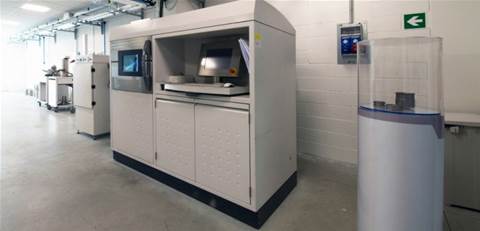Perth headquartered, medical technology company Singular Health has partnered with CSIRO’s Data61 to develop an AI-powered cranial implant tool, that can be viewed and designed in VR and 3D printed for surgical installation.
The ASX-listed company contracted Australian Additive Engineering to build 3D medical printing facilities in Melbourne for $300,000 in May last year.
The ‘Scan to Surgey’ project aims to reduce lead times for surgeries through localised manufacturing.
The company said in its quarterly report published 26 April that the facility afforded the on-demand opportunity to produce high precision surgical guides including drilling and cutting aids, along with patient-specific implants.
The company said it partnered with computer scientists from CSIRO’s Data61 to enhance its 3Dicom software, which produces outputs for the 3D printers and can be used for surgical planning.
“AI-powered algorithms are expected to substantially reduce the time taken to segment organs and design patient-specific implants,” the company said.
Singular Health and Data 61 created two separate AI-powered segmentation algorithms: one for the spine and a second for the skull.
Singular Health said its partnership with the government agency’s digital research division created a cranial implant design tool that has been used to produce cranial implants from CT scans of skulls with head trauma.
“The Company received a class-leading artificial intelligence-driven medical image segmentation tool from CSIRO’s computing team at Data 61 and has plans to test this on expanded datasets
“Work is underway to integrate this AI-powered auto implant tool into our workflow and allow for ease of export to a 3D printed format.”
Singular Health collaborated with ASX-listed, Singapore-based OsteoPore to assess the tool for clinical case planning.
Singular Health went public in February last year. It raised $6 million before costs in its IPO at a share price of $0.20.
Singular Health said a year of foundation-building had enabled it to conduct its first sales and marketing campaigns with visits to the USA, Europe, and Singapore.
The company said it was focused on securing the regulatory approvals necessary for global expansion.
“Subsequent to the quarter’s end, the company has been highly focused on regulatory approvals with the appointment of a technical consultant and notified body auditor to develop technical documentation for conformance with the European Union, Medical Device Regulations, Australia’s Therapeutic Goods Administration and the US Food and Drug Administration.”




_(21).jpg&h=142&w=230&c=1&s=1)








.jpg&w=100&c=1&s=0)








_(1).jpg&q=95&h=298&w=480&c=1&s=1)


